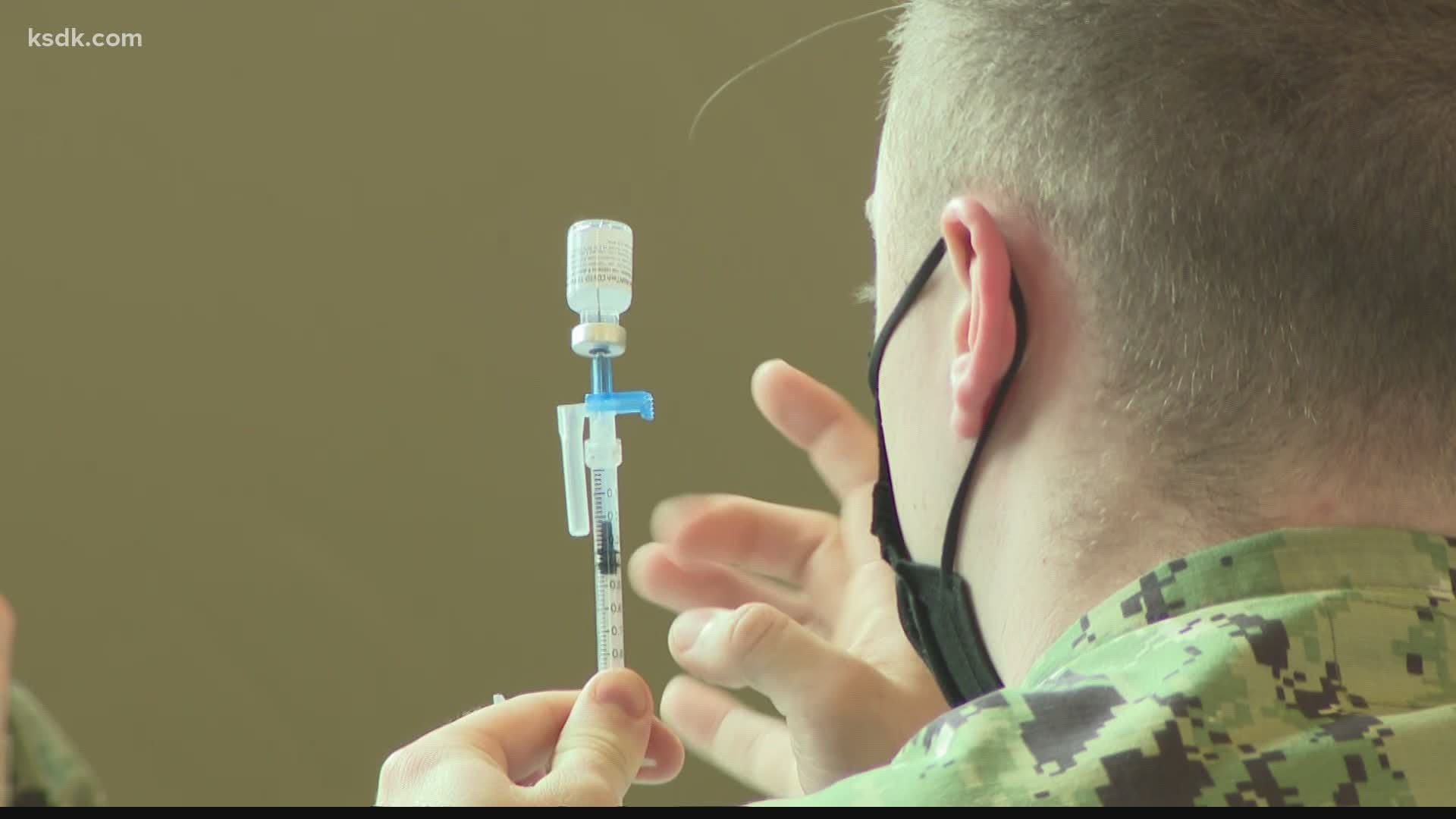ST. LOUIS — The next phase of Pfizer’s vaccination trials is now underway, testing the vaccine’s effectiveness in children ages 5-11 years old. Within the next several weeks, the trials will expand to include children as young as 6 months old.
“Today marks an important next step in our efforts to understand the safety and immune response of our COVID-19 vaccine,” said Dr. Bill Gruber in an email statement to 5 On Your Side. Dr. Gruber is the senior vice president of clinical research and development at Pfizer.
The Phase 2/3 trial will be slightly different from previous trials, with smaller doses of the vaccine used in the younger participants.
Children ages 5-11 will receive 10 micrograms (μg) per dose – which is about a third of the teen and adult dose – in a two-shot schedule, spaced three weeks apart.
Pfizer’s Phase 2/3 will expand to children 2-4 years old in the coming weeks, followed by children as young as 6 months. These younger trial participants will receive a 3-microgram dose in a two-shot regimen.
Dr. David Hunstad is a Washington University Pediatric Infectious Disease Physician at St. Louis Children’s Hospital.
He explains Phase 1 determined a minimal effective dose, which means it's a dose that minimizes side effects while maximizing safety.
"Smaller children of lower size, lower body weight might need less of a vaccine dose to get in order to get a proper protective response," Dr. Hunstad adds.
Dr. Hunstad says the 30 micrograms given to adults could still work on young children and could give them a good immune response, but it may give them a higher rate of adverse effects, such as fevers and chills.
So now with the right amount of antigen figured out, researchers move to the next phase.
Dr. Hunstad explains, "Now you can move to part two, where you actually study that dose that you've chosen in a larger number of children in each age group and determine how it works in a larger population."
There also will be placebos given to some of the kids participating in the trials. Families will find out which dose their children received at the trial.
In the St. Louis area, one of the biggest trials for adults and children took place in Chesterfield at Clinical Research Professionals.
A spokesperson says, "Our site is actively enrolling the 5-11 year old cohort in the Pfizer pediatric COVID-19 vaccine study, but we will not be participating in the 6mo to <5 year old cohort. Unfortunately, all sites were limited to a very small number of candidates to enroll and a lot of sites are participating in the hope enrollment will be completed very quickly. We are still hopeful Pfizer will give us a few more spots if any become available because we have a waiting list of hundreds of interested participants signed up in this age group. It’s going very well so far, but we are disappointed that we are so limited on enrollment."
“Children younger than 12 make up a significant portion of the total global population and can develop COVID-19 disease, and also can spread the virus to others. If successful, we believe vaccinating children will help further protect our communities and contribute to the evolving herd immunity,” Dr. Gruber said.
Pfizer’s study will include 4,500 children ages 6 months-11 years old. It will span more than 90 clinical sites in the U.S., Finland, Poland and Spain.
If the vaccine is proven to be effective and safe in younger children, Pfizer plans to submit for emergency use authorization (EUA) to the Food and Drug Administration (FDA) sometime in September or October for children 5-11 and shortly after that for the youngest trial groups.
The timing could be crucial for schools across America as they plan and prepare for in-person classes this fall.
Pfizer was granted EUA from the FDA for use in Americans 12 and older last month. If Pfizer receives emergency authorization from the FDA, it would be the first to do so for children. Moderna and Johnson & Johnson are currently approved for those 18 and older.

